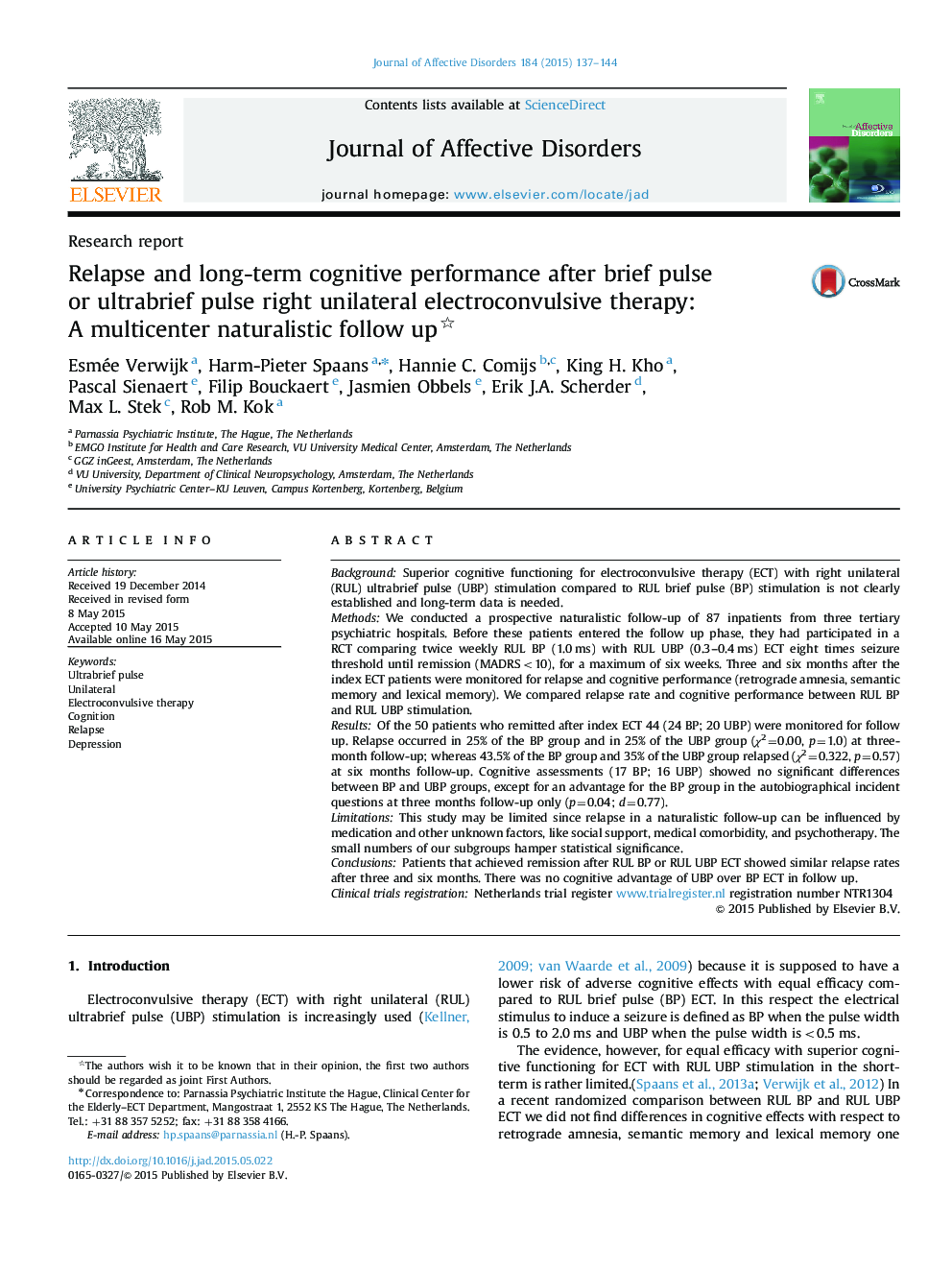| کد مقاله | کد نشریه | سال انتشار | مقاله انگلیسی | نسخه تمام متن |
|---|---|---|---|---|
| 6231264 | 1608141 | 2015 | 8 صفحه PDF | دانلود رایگان |
- Within 6 months after successful right unilateral (RUL) brief pulse (BP) or RUL ultrabrief pulse (UBP) ECT, relapse occurred in 38.6%.
- At 6 month post-ECT there were no differences in cognition between BP and UBP.
- Treatment schedule and number of sessions should be included in future cognitive evaluation studies in ECT.
BackgroundSuperior cognitive functioning for electroconvulsive therapy (ECT) with right unilateral (RUL) ultrabrief pulse (UBP) stimulation compared to RUL brief pulse (BP) stimulation is not clearly established and long-term data is needed.MethodsWe conducted a prospective naturalistic follow-up of 87 inpatients from three tertiary psychiatric hospitals. Before these patients entered the follow up phase, they had participated in a RCT comparing twice weekly RUL BP (1.0Â ms) with RUL UBP (0.3-0.4Â ms) ECT eight times seizure threshold until remission (MADRS<10), for a maximum of six weeks. Three and six months after the index ECT patients were monitored for relapse and cognitive performance (retrograde amnesia, semantic memory and lexical memory). We compared relapse rate and cognitive performance between RUL BP and RUL UBP stimulation.ResultsOf the 50 patients who remitted after index ECT 44 (24 BP; 20 UBP) were monitored for follow up. Relapse occurred in 25% of the BP group and in 25% of the UBP group (Ï2=0.00, p=1.0) at three-month follow-up; whereas 43.5% of the BP group and 35% of the UBP group relapsed (Ï2=0.322, p=0.57) at six months follow-up. Cognitive assessments (17 BP; 16 UBP) showed no significant differences between BP and UBP groups, except for an advantage for the BP group in the autobiographical incident questions at three months follow-up only (p=0.04; d=0.77).LimitationsThis study may be limited since relapse in a naturalistic follow-up can be influenced by medication and other unknown factors, like social support, medical comorbidity, and psychotherapy. The small numbers of our subgroups hamper statistical significance.ConclusionsPatients that achieved remission after RUL BP or RUL UBP ECT showed similar relapse rates after three and six months. There was no cognitive advantage of UBP over BP ECT in follow up.Clinical trials registrationNetherlands trial register www.trialregister.nl registration number NTR1304
Journal: Journal of Affective Disorders - Volume 184, 15 September 2015, Pages 137-144
